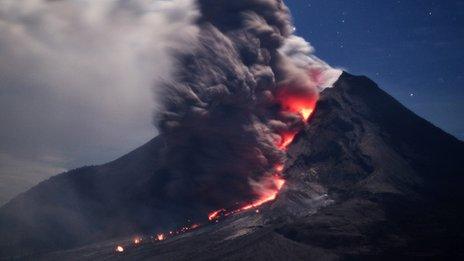Bristol geologist wins Vetlesen Prize for volcano work
- Published
.jpg)
Prof Stephen Sparks is among the world's mostly highly-cited geologists
A British geologist whose work has improved the ability to forecast deadly volcanic eruptions is to receive the 2015 Vetlesen Prize.
The award being given to Prof Stephen Sparks, of the University of Bristol, is considered the "Nobel Prize of the earth sciences".
Prof Sparks headed monitoring efforts when Montserrat's Soufrière Hills volcano came to life in the 1990s.
He will be awarded a medal and $250,000 at a ceremony in New York in June.
Elected to the Royal Society at the age of 38, Prof Sparks is among the world's mostly highly-cited geologists.
Evacuations and rebuilding
He is credited with being one of the first to apply maths and physics to the interpretation of volcanic processes and deposits in the field, bringing volcanology into the modern era.
He pioneered methods for assessing the danger posed by active volcanic eruptions, helping governments to improve decisions about evacuations and rebuilding.
Prof Sparks, who was born in London and raised in Chester, is a father-of two who now lives in Bristol with his wife Ann.
Barry Voight, a volcanologist at Pennsylvania State University, said: "Everyone has an egotism that drives their research, but Steve never lets it get in the way of working with others.
"You know he's not going to pick your brain and run off with your ideas. Instead, he will often improve on them."
The Vetlesen Prize is supported by the G Unger Vetlesen Foundation and administered by Lamont-Doherty Earth Observatory at Columbia University.

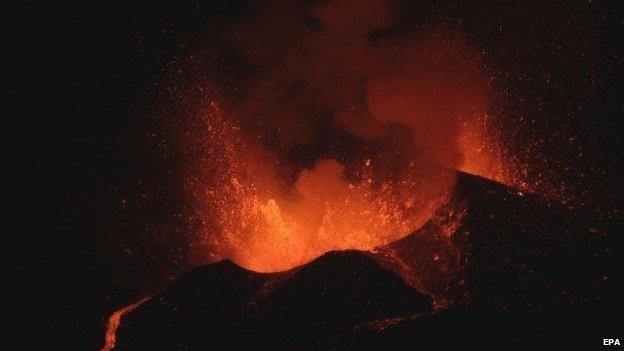
Prof Stephen Sparks' career
In a 1977 study in Nature, he showed how magma deep within the earth could mix with material closer to the surface to trigger an explosive eruption
In Icelandic volcanoes, he showed that the sideways flow of magma could cause the collapse of a caldera [crater at the top of a volcano] up to 40 miles away
Off the coast of Greece, his analysis of deep-sea volcanic rocks added support for the idea that the Thera eruption around 1500 BC may have influenced the fall of the ancient Minoans on the island of Crete
In 1978, Prof Sparks moved to the University of Cambridge where he published a series of influential papers with mathematician Herbert Huppert on the physics of magma chambers beneath volcanoes
In 1989, he and geochemist Bernie Wood were tapped to lead the University of Bristol's geology department
He helped show how small pressure variations in a volcano's magma chamber, or in the stickiness of its magma, can turn a gently oozing eruption into something explosive
In a 2006 study in the Journal of Petrology, he helped model the evolution of Earth's crust in deep "hot zones" where chemically altered magmas drive volcanism

- Published29 August 2023
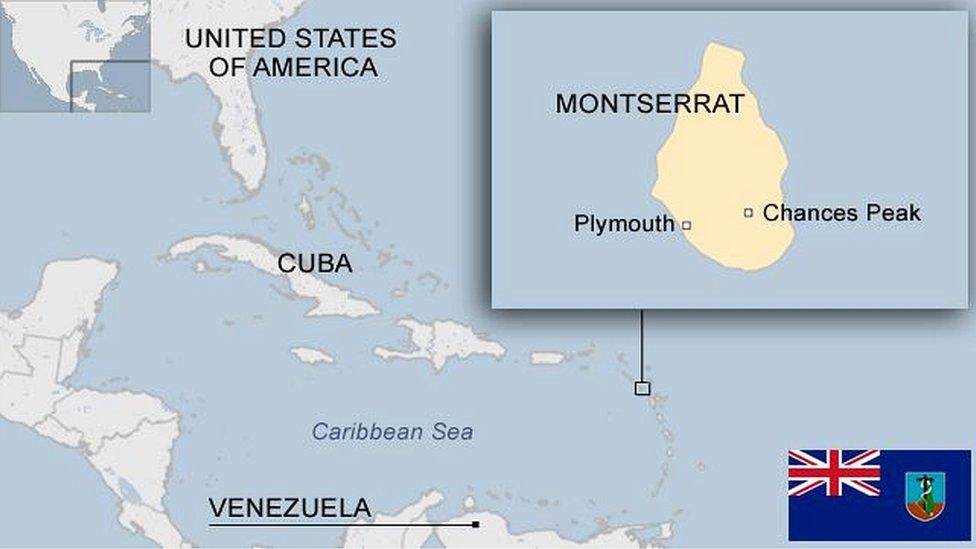
- Published13 December 2014
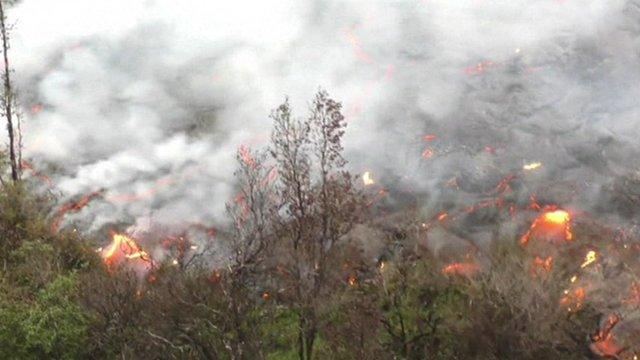
- Published30 April 2014
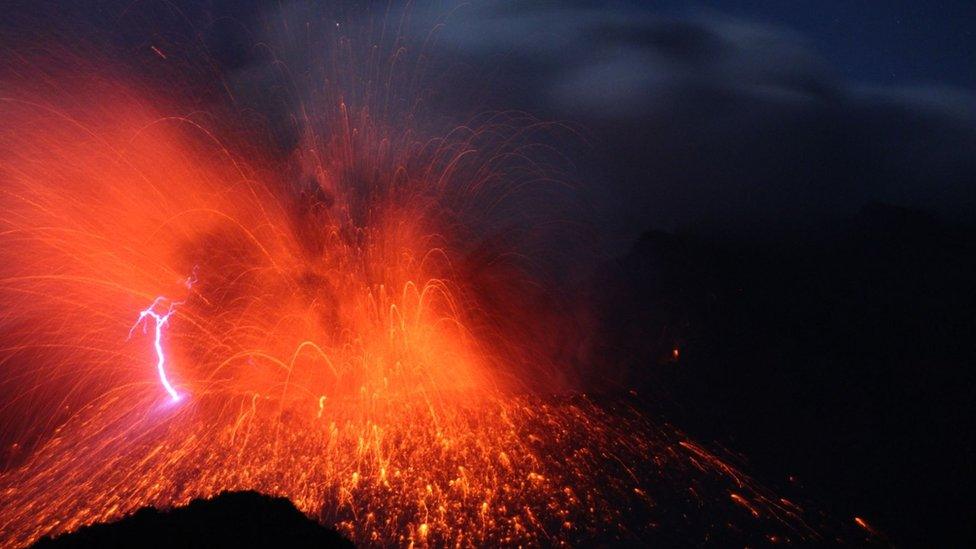
- Published27 March 2014
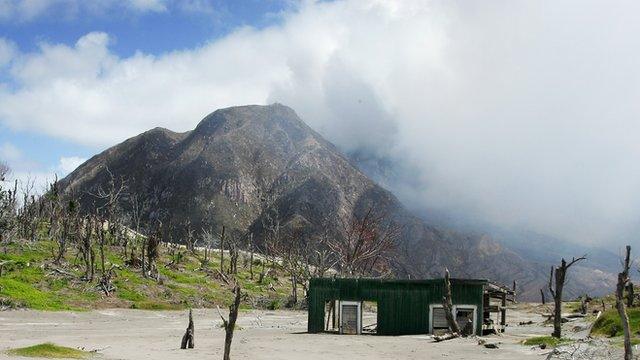
- Published5 November 2015
